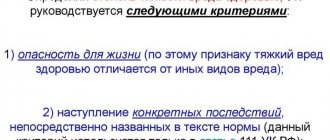1. Embezzlement or embezzlement, that is, theft of someone else's property entrusted to the guilty person, is punishable by a fine in the amount of up to one hundred twenty thousand rubles or in the amount of the wages or other income of the convicted person for a period of up to one year, or by compulsory labor for a period of up to two hundred and forty hours, or correctional labor for a term of up to six months, or restriction of liberty for a term of up to two years, or forced labor for a term of up to two years, or imprisonment for the same term.
2. The same acts committed by a group of persons by prior conspiracy, as well as causing significant damage to a citizen, are punishable by a fine in the amount of up to three hundred thousand rubles or in the amount of the wages or other income of the convicted person for a period of up to two years, or by compulsory labor for a term up to three hundred sixty hours, or correctional labor for a term of up to one year, or forced labor for a term of up to five years with or without restriction of freedom for a term of up to one year, or imprisonment for a term of up to five years with restriction of freedom for a term of up to one year or without it.
3. The same acts committed by a person using his official position, as well as on a large scale, are punishable by a fine in the amount of one hundred thousand to five hundred thousand rubles or in the amount of the wages or other income of the convicted person for a period of one to three years, or deprivation of the right to hold certain positions or engage in certain activities for a term of up to five years, or forced labor for a term of up to five years with or without restriction of freedom for a term of up to one and a half years, or imprisonment for a term of up to six years with a fine of up to ten thousand rubles or in the amount of wages or other income of the convicted person for a period of up to one month or without it and with or without restriction of freedom for a period of up to one and a half years.
4. Acts provided for in parts one, two or three of this article, committed by an organized group or on an especially large scale, are punishable by imprisonment for a term of up to ten years with a fine in the amount of up to one million rubles or in the amount of the wages or other income of the person convicted of a period of up to three years or without it and with restriction of freedom for a period of up to two years or without it.
Definitions of embezzlement and embezzlement
Embezzlement and embezzlement are two different forms of theft of entrusted property. With this term, the legislator defines property that the perpetrator could dispose of, manage, etc. under an agreement or special order of a state or public organization.
Appropriation means the use by a person of the property entrusted to him for his own benefit without the consent of the owner. Embezzlement is the illegal actions of a citizen who has used up the property entrusted to him or transferred it to third parties without the permission of the owner. Common types of this type of crime are embezzlement of a survivor's pension or guardianship contributions, maternity capital.
In both cases - both embezzlement and embezzlement - the court must establish the selfish intent of the perpetrator.
Corpus delicti
The object of appropriation and embezzlement corresponds to the object of theft; these are property relations. However, the subject of the crime can only be the property that was entrusted to the guilty person. In this case, we are talking about property in relation to which the criminal has acquired certain powers. The reasons for them are:
- civil contracts (storage, transportation, rental);
- official or labor relations;
- special powers.
If a person did not have the authority to own the property, it was transferred under the protection or supervision of a random person, then the property is not recognized as entrusted. Secret theft in this case is qualified under Article 158 of the Criminal Code of the Russian Federation. Thus, the significant difference between appropriation and theft is that the criminal does not take property from the owner, but acquires rights to it legally.
Misappropriation and embezzlement of property are crimes that are carried out in two ways. The first method is the commission of a certain action (for example, when the perpetrator uses property that was transferred to him for safekeeping). The second is inaction (for example, when the person to whom the property was entrusted declares to the legal owner that it burned down in a fire).
The corpus delicti in the case of misappropriation or embezzlement is material. The appropriation is considered completed from the moment when the rights to own the entrusted property are transferred to the guilty person and he begins to take actions to enrich the property in his favor. Embezzlement is considered completed from the moment of illegal withdrawal of the entrusted property.
The subject of these crimes is a citizen with the following characteristics:
- reaching adulthood;
- financially responsible person;
- a citizen to whom the stolen property was entrusted by the owner on the basis of a document.
If a group of persons participated in the misappropriation or embezzlement, only those citizens who have the characteristics of special subjects are recognized as executors. They bear criminal liability under Articles 33 and 160 of the Criminal Code of the Russian Federation as organizers, instigators or accomplices.
It must be proven in court that the subject of the misappropriation or embezzlement had direct intent and selfish purpose. Direct intent is aimed at causing property damage to the victim. This is facilitated by the implementation of a selfish goal, which is characterized by the intention to use someone else’s property for personal purposes, deriving financial benefit from it.
The difference between appropriation and embezzlement
The main difference between appropriation and embezzlement is that in the first case, the person illegally owns, and in the second, he turns the property entrusted to him into his own benefit through spending, consumption, alienation .
Each case of misappropriation and embezzlement is investigated for intent. In this case, the specific circumstances of the case are taken into account, including whether the citizen has a real opportunity to return the property to the owner and attempts to hide his actions through forgery or other means.
Many lawyers consider embezzlement to be the next stage of appropriation of entrusted property. They explain that in order to begin to turn property into your favor, you must first decide that it will not be returned to its owner. On the other hand, in judicial practice this approach to crime is not applied, otherwise the same theft would have 2 end points: the end of the appropriation and the end of the embezzlement.
Both types of theft of entrusted property are characterized by its presence in the hands of the perpetrator at the time the crime ends. At the moment the appropriation ends, the culprit has the opportunity to dispose of someone else’s property, and at the moment the embezzlement ends, he puts this opportunity into practice. There is no time period between lawful possession and unlawful seizure of property during which the offender exercises unlawful possession of it.
Difference between embezzlement and fraud
According to the PPVS on fraud, embezzlement and embezzlement, in the case of fraud there is a breach of trust of the victim. It is expressed in the use for personal gain of trust relationships established with the owner of property or a person authorized to transfer this property to other persons.
Trust is determined by various circumstances - for example, the official position of the perpetrator or family relations with the victim.
Theft is qualified under Article 160 of the Criminal Code of the Russian Federation if there was a legally established relationship between the owner and the person to whom he entrusted his property. Thus, the main difference between fraud and embezzlement is that in the first case the subject of the crime is in a legal relationship with the owner of the property, which is based on trust, and in the second - not.
Features of fraud under embezzlement
Fraud involves a violation of the trust of the injured party, which is expressed as follows: a fraudster with selfish plans establishes a trusting relationship with the owner of the property or with a person who has the authority to transfer this property to other people.
There are various circumstances that determine trust - family relationships with the injured party, the official position of the accused, and others.
The classification of theft is established if there was a relationship between the owner and the attorney that was recorded legally. As a result, the main difference between fraud is that it presupposes that the criminal is in a legal relationship with the owner of the property, which is based on trust.
In addition, the legislation contains the term “arbitrariness”. This is the seizure, conversion to personal interests or interests of other individuals of someone else's property by a person who intended to exercise an alleged or existing right to this property. For example, a person appropriated the issued property, planning to repay the debt of the owner of this property. Arbitrariness should not be confused with theft. The culprit faces punishment in accordance with Art. 330 of the Criminal Code of the Russian Federation.
Qualification
According to the version of the criminal code in force for 2021, the qualifying feature in the case of misappropriation or embezzlement is the infliction of significant property damage on the victim. Its minimum amount is 2500 rubles.
To establish the presence of a qualifying characteristic, the court must determine the real value of the embezzled or wasted property, as well as the property status of the victim, which is measured in:
- availability of sources of income;
- amount of income;
- frequency of income receipt;
- presence of dependents;
- total income of all family members.
The court listens to the opinion of the victim himself about the significance of the damage caused to him, but also takes into account the case materials, which serve as confirmation of the value of the stolen property and demonstrate the property status of the victim.
Several thefts of property, the total value of which is more than 250,000 rubles, are classified as grand theft. When misappropriation and embezzlement of property with a total value of 1,000,000 rubles or more is recorded as theft on an especially large scale. In both cases, all facts of theft must be committed using a single method under circumstances that indicate the presence of selfish intent on the part of the perpetrator.
Actions of accomplices
If a group of people took part in the misappropriation or embezzlement, the court must establish the roles of each of them.
Incitement is proven when a person induces another person to commit criminal acts through bribery, threat, persuasion or other methods.
Complicity consists of facilitating the implementation of illegal actions with the help of instructions, advice, providing any data, tools or means for committing a crime, or removing obstacles. An accomplice is also recognized as a citizen who promised in advance to hide the identity of the perpetrator and traces of illegal actions or intended to purchase and sell stolen property.
Arbitrariness
Separately, the law specifies the concept of arbitrariness. This is the seizure and (or) conversion in one’s own favor or in favor of other persons of someone else’s property by a citizen who sought to realize his actual or perceived right to this property. An example of arbitrariness is the appropriation by a citizen of property entrusted to him in order to pay the debts of the property owner.
From a legal point of view, arbitrariness is not theft. In this case, the culprit is held accountable under Article 330 of the Criminal Code of the Russian Federation.
Features of initiating a case
Comments by legal scholars and legal consultants on the latest amendments to criminal law indicate that in order to initiate a criminal case for embezzlement or embezzlement, four important factors must be present:
- Only a legally capable person who has reached the age of sixteen can be held accountable for an offense under Article 160 of the Criminal Code of the Russian Federation;
- a person who has committed a criminal offense must be realistically aware that his actions are illegal and qualify as a crime;
- the purpose of committing one of the two types of offense is to obtain one’s own benefit;
- the object of a criminal offense is the commission of illegal actions with property that was entrusted to the criminal on the basis of an official instruction, an employment contract or by virtue of other rights that were acquired by a citizen through a transaction for storage or use.
All of the above factors are mandatory for the lawful initiation of a criminal case under the article in question of the Code.
Methods of defense in court
A person suspected of embezzlement or embezzlement of entrusted property has several options for defense in court:
- challenging the value of property (if it was not money that was stolen);
- reconciliation with the victim and a petition to terminate the criminal case (if charged under Part 1 and Part 2 of Article 160 of the Criminal Code of the Russian Federation);
- proving the fact that the perpetrator acted with the knowledge of the property owner;
- reclassification of the crime (if charged under Part 2, Part 3 and Part 4 of Article 160 of the Criminal Code of the Russian Federation);
- full or partial compensation for damage to the victim;
- collection of characteristics of the culprit.
Responsibility
For misappropriation or embezzlement of budget funds, the Criminal Code of the Russian Federation provides several types of punishments:
- a fine of 120,000 rubles or in the amount of the income of the convicted person for a one-year period;
- up to 24 hours of mandatory work;
- up to six months of correctional labor;
- up to 2 years of restriction of freedom;
- up to 2 years of forced labor;
- up to 2 years of imprisonment.
Punishment of a group of people
If it is proven that a group of persons by prior conspiracy participated in the embezzlement or embezzlement, and the victim suffered significant property damage, this is considered an aggravating circumstance. The following types of punishment are provided for members of a criminal group:
- a fine of up to 300,000 rubles or the amount of the convicted person’s income for a two-year period;
- up to 360 hours of compulsory work;
- up to 1 year of correctional labor;
- up to 5 years of forced labor;
- up to 1 year of restriction of freedom;
- up to 5 years of imprisonment.
If property was stolen on an especially large scale, the maximum term of imprisonment increases to 10 years, and the maximum fine increases to 1,000,000 rubles or up to the amount of the convicted person’s income for a period of up to 3 years.
Abuse of official position
Abuse of official position is another aggravating circumstance. In case of misappropriation or embezzlement of property on a large scale, the court may impose the following types of punishment on the convicted person:
- a fine from 100,000 to 150,000 rubles or in the amount of income for a period of one to 3 years;
- deprivation of the right to hold a number of positions or engage in certain activities for up to 5 years;
- up to 5 years of forced labor;
- up to 1.5 years of restriction of freedom;
- up to 6 years of imprisonment.
Property is the economic basis for the existence of society. It largely determines political, legal, moral, ideological and other types of relations between people. Therefore, types of crimes such as embezzlement and embezzlement are contrary to the public interest and are subject to criminal prosecution. Those convicted under Article 160 of the Criminal Code of the Russian Federation are punished with large fines and real prison terms. At the same time, participation in a crime by a group of persons by prior conspiracy and theft on a large and especially large scale are aggravating circumstances that significantly increase criminal liability.










